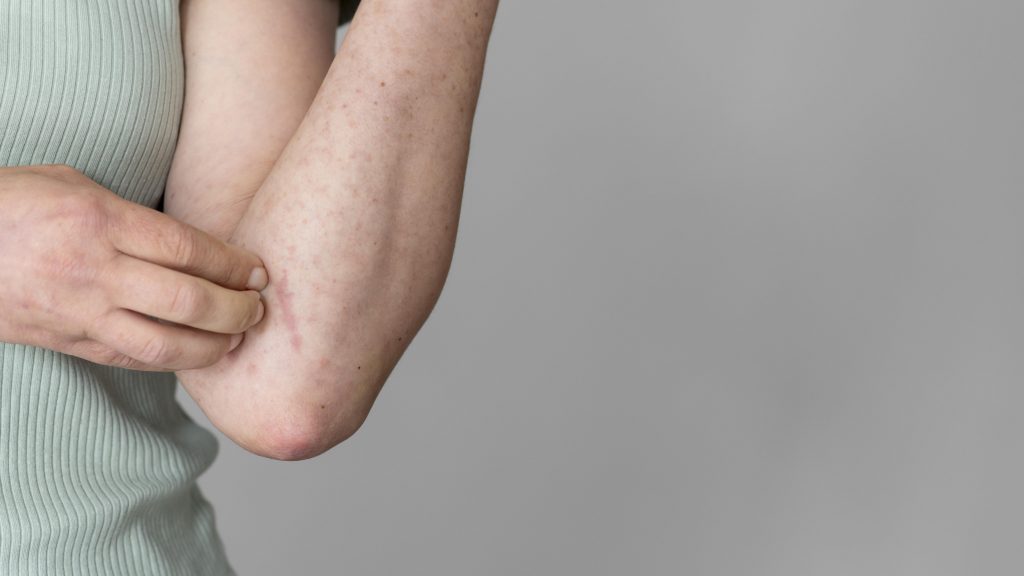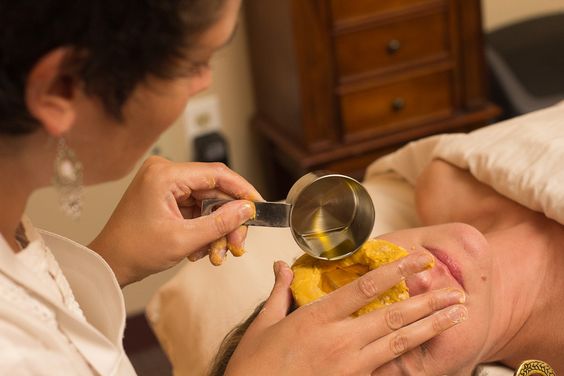Psoriasis is a chronic autoimmune disease that manifests as red, scaly patches on the skin, causing discomfort and emotional stress. While conventional treatments are available, many are turning to Ayurveda, an ancient Indian system of medicine, for a natural and holistic approach to managing this condition. In this blog, we explore Ayurvedic treatments for psoriasis, offering insights into how these methods can provide relief and promote overall well-being.
Understanding Psoriasis in Ayurveda

In Ayurveda, psoriasis is viewed as a result of imbalances in the body’s doshas—Vata, Pitta, and Kapha. Specifically, it is often considered a combination of Vata and Kapha dosha imbalances, leading to the accumulation of toxins (Ama) in the body. This toxin build-up manifests as the skin symptoms seen in psoriasis. The Ayurvedic approach focuses on detoxifying the body, balancing the doshas, and strengthening the body’s natural healing processes.
Dr. Yogesh Vani’s Ayurvedic Treatment Approach
Dr. Yogesh Vani, a respected Ayurvedic practitioner, specializes in treating psoriasis through personalized and holistic methods. His treatment strategies include detoxification, herbal remedies, dietary adjustments, and stress management.
Key Components of Ayurvedic Psoriasis Treatment
- Detoxification (Panchakarma)
- Virechana (Purgation Therapy): Uses herbal laxatives to cleanse the body and eliminate toxins.
- Vamana (Emesis Therapy): Induces controlled vomiting to remove toxins from the upper gastrointestinal tract.
- Basti (Enema Therapy): Herbal enemas cleanse the colon and balance the doshas.

- Herbal Remedies
- Neem: Anti-inflammatory and antimicrobial properties help soothe the skin and reduce inflammation.
- Turmeric: Known for its anti-inflammatory and antioxidant benefits, turmeric aids in reducing symptoms and promoting skin health.
- Aloe Vera: Moisturizes and soothes the skin, alleviating itching and scaling.
- Guggul: Helps in detoxification and balancing the doshas
- Diet and Lifestyle Adjustments
- Anti-inflammatory Diet: Emphasizes fresh, whole foods that pacify Vata and Kapha, such as leafy greens, fruits, whole grains, and lean proteins.
- Avoiding Triggers: Reduces intake of foods that aggravate Pitta and Kapha, like spicy foods, processed foods, and dairy.
- Hydration: Drinking plenty of water and herbal teas to flush out toxins.
- Regular Exercise: Yoga and walking help maintain balance and reduce stress.

- Stress Management
- Meditation and Yoga: These practices help calm the mind and reduce stress, a common trigger for psoriasis flare-ups.
- Pranayama (Breathing Exercises): Techniques like Anulom Vilom and Kapalbhati help balance the body’s energy and reduce stress.
Benefits of Ayurvedic Treatment for Psoriasis
Ayurvedic treatment for psoriasis offers several benefits:
- Holistic Approach: Treats the root cause rather than just the symptoms.
- Natural Remedies: Utilizes natural herbs and therapies with minimal side effects.
- Personalized Treatment: Tailors treatment to the individual’s unique constitution and specific dosha imbalances.
- Long-term Relief: Focuses on long-term management and prevention of flare-ups.
Conclusion
Ayurvedic treatments for psoriasis, such as those offered by Dr. Yogesh Vani, provide a comprehensive and natural approach to managing this chronic condition. By focusing on detoxification, herbal remedies, dietary adjustments, and stress management, individuals can find relief and improve their quality of life. Always consult with a qualified Ayurvedic practitioner to develop a treatment plan tailored to your specific needs.
For those seeking an alternative to conventional treatments, Ayurveda offers a promising path to healing and well-being. By embracing this ancient wisdom, individuals with psoriasis can achieve better control over their condition and lead fulfilling lives.


